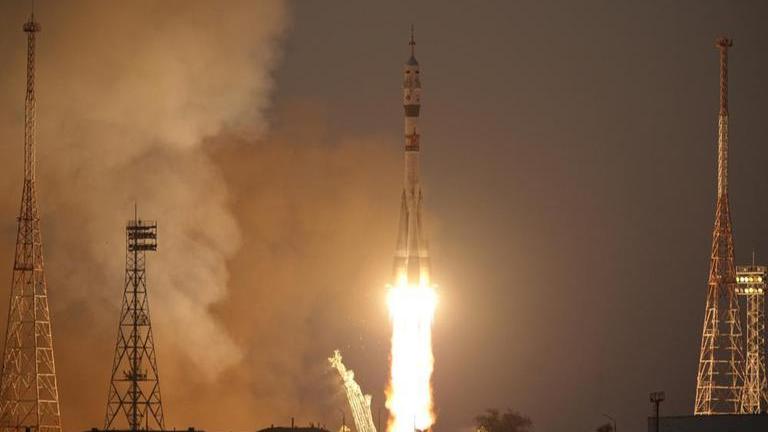
- Select a language for the TTS:
- UK English Female
- UK English Male
- US English Female
- US English Male
- Australian Female
- Australian Male
- Language selected: (auto detect) - EN
Play all audios:
Russia has launched the Soyuz-2.1B rocket carrying the first orbital spacecraft from the Sfera (Sphere) multi-satellite orbital constellation called the Skif-D satellite. Additionally, the
rocket carries three Gonets-M communications satellites, reported Sputnik on Saturday. The launch was observed by Russia’s Deputy Prime Minister Denis Manturov and Roscosmos chief Yuri
Borisov. The satellites are expected to enter their orbits in several hours The Gonets is Russia’s civilian low Earth orbit communications satellite system, consisting of a number of
satellites, derived from Strela military communications satellites. The latest launch was the 18th Gonets-M mission. The Soyuz-2.1B is an upgraded version of the Soyuz-2 rocket. In its
basic form, the rocket is a three-stage launch vehicle for placing payloads into the lower Earth orbit. In contrast to the previous versions of the Soyuz, the first-stage boosters and two
core stages feature engines uprated with improved injection systems. The Skif-D satellite is set to demonstrate the capabilities of Russia's endeavour to establish a future system of
broadband internet called Skif. This will be a part of Russia’s Sfera constellation of satellites. Moreover, the Sfera constellation will now include only 162 satellites, instead of the
initially planned 500 satellites. Additionally, Russia has scheduled the launch of the first Express-RV satellite for high elliptic earth orbit in late 2025. Meanwhile, Russia’s
Reshetnev Company is scheduling to launch the demonstrator Marathon satellite. This is part of the effort to deploy a constellation of 264 Marathon IoT communications satellites into orbit.
The program will take three years, Alexander Kuzovnikov, the Deputy CEO of the Reshetnev Information Satellite Systems Company stated in November. The Reshetnev Company was working on the
constellation’s preliminary design. The Executive Director for Science and Long-Term Programs of Roscosmos, Alexander Bloshenko earlier said that the satellite constellation would provide
services to search for people. Moreover, the data will be directly transmitted to the Emergencies Ministry or search services.




